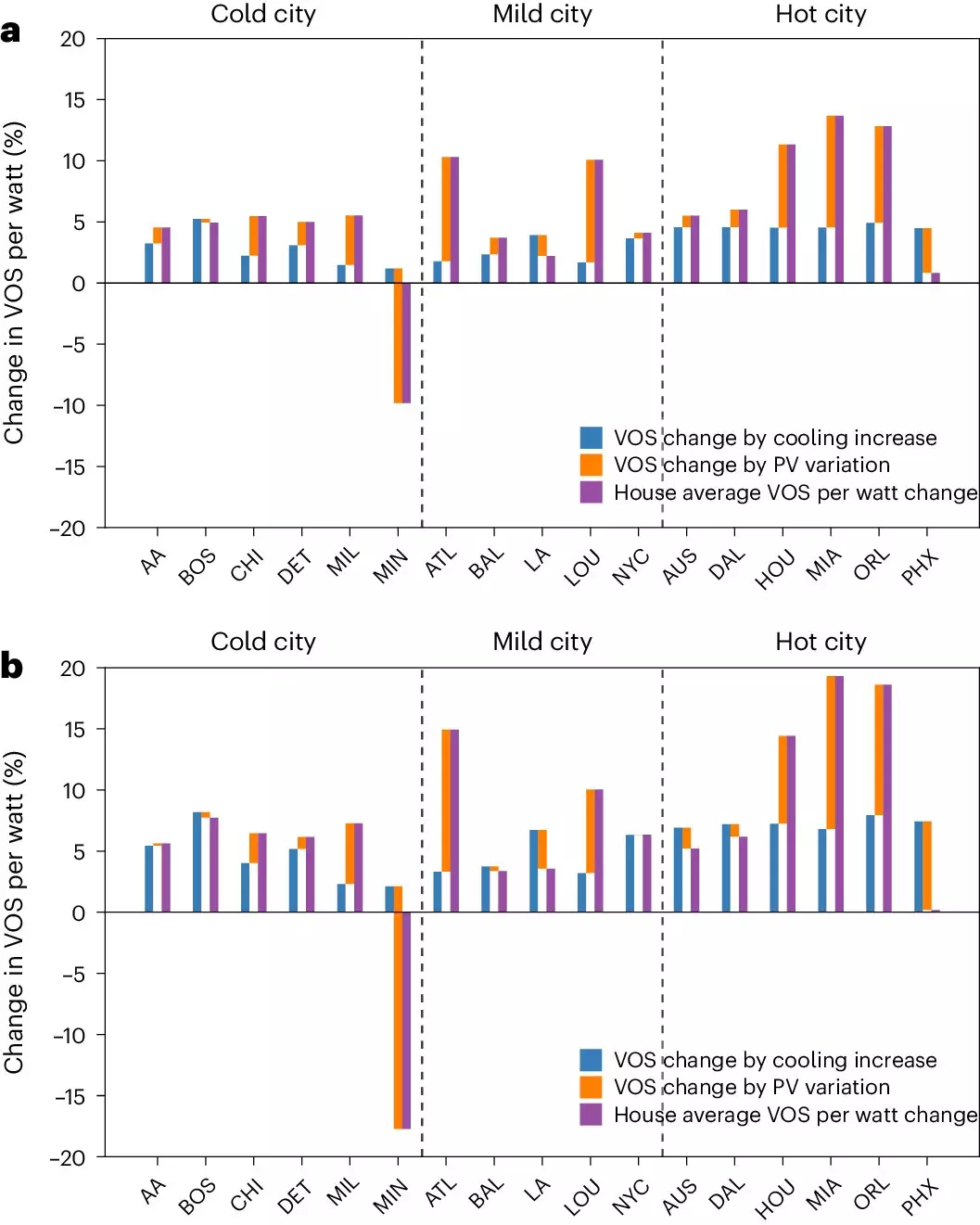Climate change is a topic that is continuously shaping the future of renewable energy sources such as solar power. According to a recent study led by the University of Michigan, the value of residential rooftop solar panels in the United States is expected to increase by up to 19% by the end of the century. This increase in value is attributed to various factors that are influenced by climate change dynamics. The study defines the value of solar (VOS) as a combination of financial benefits from electricity bill savings and revenues generated by selling excess electricity to the grid, minus the initial installation costs.
One of the key findings of the study is that increased demand for residential air-conditioning, driven by warmer climates, plays a significant role in boosting the future value of rooftop solar panels. As temperatures rise, households are expected to consume more solar-generated electricity for cooling purposes, rather than selling it back to the grid. This shift in energy consumption patterns is crucial for the economic benefits of rooftop solar systems, especially in states where the retail cost of electricity is higher than the rate at which excess energy is credited when sent back to the grid.
The study analyzed data from 2,000 households in 17 U.S. cities to assess the impact of climate change on the value of rooftop solar panels. While most cities experienced an increase in the future value of solar, a few exceptions were noted. For instance, Miami saw the largest increase in value, while Minneapolis witnessed a decrease in financial benefits due to limited future increases in cooling demand. The performance of solar panels in response to changing weather conditions, such as rising air temperatures and cloud cover, varied from city to city, influencing the overall value of rooftop solar installations.
As the demand for residential space cooling is projected to rise in all 17 cities studied, the financial gains associated with rooftop solar are expected to outweigh changes in panel electrical output in most cases. While the benefits of rooftop solar installation are likely to be reaped mainly by households with the means to afford it, various programs exist to enhance accessibility. Initiatives that defray the costs of solar installation, government-backed projects on public buildings, and community solar programs are some of the strategies aimed at making solar energy more accessible to a wider demographic.
The future value of residential rooftop solar panels is intricately linked to climate change dynamics and shifting energy consumption patterns. As the demand for air-conditioning rises and solar-panel performance responds to changing weather conditions, the economic benefits of rooftop solar installations are expected to increase across the United States. By considering the long-term value of solar energy and adopting strategies to enhance accessibility, households can capitalize on the financial gains associated with renewable energy sources in a changing climate landscape.


Leave a Reply